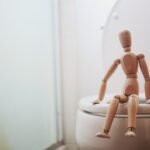
Everyone experiences forgetfulness from time to time. Our memories might become increasingly hazy as we grow older, but memory loss that interferes with normal activity is known as dementia.
Memory loss is more prevalent among stroke survivors over the age of 65.
Do strokes cause memory loss?
One common cause of memory loss is stroke. A stroke occurs when the blood supply to the brain is cut off, depriving it of vital oxygen and nutrients.
This can damage or destroy brain cells. Memory loss after a stroke is known as post-stroke dementia or post-stroke cognitive impairment.
Most people who have a stroke will experience some degree of memory loss. However, the severity of the memory loss will depend on the location and size of the stroke.
A small stroke may cause only minor memory problems, while a more severe stroke can lead to extensive memory loss.
The good news is that many people who experience memory loss after a stroke are able to improve with time and rehabilitation.
There are also many things you can do to help prevent or reduce memory loss after a stroke.
What kind of stroke causes memory loss?
There are two main types of stroke: ischemic and hemorrhagic.
ischemic stroke
An ischemic stroke occurs when a blood vessel that supplies blood to the brain becomes blocked, usually by a blood clot. This type of stroke accounts for about 87 percent of all strokes.
Ischemic strokes can cause memory loss by damaging the parts of the brain that control memory and learning. The damage is usually most severe in the hippocampus, a region of the brain that plays an important role in memory formation.
Hemorrhagic stroke
A hemorrhagic stroke occurs when a blood vessel in the brain ruptures and bleeds. This type of stroke is much less common than ischemic stroke, accounting for about 13 percent of all strokes.
Hemorrhagic strokes can cause memory loss by damaging the parts of the brain that control learning and memory. The damage is usually most severe in the hippocampus, a region of the brain that plays an important role in memory formation.
How can you prevent or reduce memory loss after a stroke?
There are many things you can do to help prevent or reduce memory loss after a stroke. These include:
- Getting regular exercise
- Eating a healthy diet
- Quitting smoking
- Managing stress
- Keeping your blood pressure under control
- Managing diabetes
- Keeping your cholesterol levels under control
- Taking steps to prevent another stroke
Is memory loss a common effect of a stroke?
Memory loss is a common effect of stroke, especially among older adults. The severity of the memory loss will depend on the location and size of the stroke.
However, many people who experience memory loss after a stroke are able to improve with time and rehabilitation. There are also many things you can do to help prevent or reduce memory loss after a stroke. For example,
- Engage in brain-stimulating activities
- Eat a healthy diet
- Exercise regularly.
You can also talk to your doctor about medications that may help to improve cognitive function after a stroke.
By taking these steps, you can help to preserve your memories and improve your quality of life after a stroke.

What are some facts about strokes and memory loss?
Here are some facts to know about strokes and memory loss:
Strokes are a leading cause of dementia.
Strokes are a leading cause of dementia. A stroke occurs when the blood supply to the brain is cut off, depriving the brain of oxygen.
This can damage or kill brain cells, and strokes are a major cause of cognitive decline. In fact, strokes are responsible for up to one-third of all cases of dementia.
The good news is that strokes are preventable. If you have high blood pressure, quit smoking, and consume alcohol in moderation, you can greatly reduce your risk of having a stroke.
Memory loss is a common symptom of stroke.
Memory loss is a common symptom of stroke, which can lead to difficulty recalling recent events or conversations, as well as trouble remembering new information.
The extent of memory loss depends on the location and severity of the stroke, but it is often one of the most debilitating side effects of the condition.
In some cases, memory loss can be temporary, but for many people, it is a lifelong struggle.
There are a variety of treatments available to help improve memory function, but in some cases the damage is permanent. As such, it is important to be aware of the potential for memory loss if you or a loved one has suffered a stroke.
The severity of memory loss depends on the location and size of the stroke.
The severity of the memory loss will depend on the location and size of the stroke.
For example, a small stroke in the hippocampus, which is responsible for forming new memories, may cause only mild memory problems.
In contrast, a large stroke in the temporal lobe, which is important for storing memories, can lead to more significant memory loss.
Treatment for memory loss following a stroke often includes rehabilitation and medication. With proper care, many people are able to regain some or all of their lost memories.
Can memory loss after stroke be treated?
Yes, memory loss after a stroke can be treated. There are many things you can do to help prevent or reduce memory loss after a stroke. These include:
- Getting regular exercise
- Eating a healthy diet
- Quitting smoking
- Managing stress
- Keeping your blood pressure under control
- Managing diabetes
- Keeping your cholesterol levels under control
- Taking steps to prevent another stroke
You can also talk to your doctor about medications that may help improve cognitive function after a stroke.
By taking these steps, you can help preserve your memories and improve your quality of life after a stroke.
The takeaway
Strokes and memory loss are closely related. Strokes are a leading cause of dementia, and memory loss is a common symptom of stroke.
The severity of the memory loss will depend on the location and size of the stroke. However, many people who experience memory loss after a stroke are able to improve with time and rehabilitation.
There are also many things you can do to help prevent or reduce memory loss after a stroke. These include healthy lifestyle choices and talking to your doctor about medications that may help improve cognitive function.
If you or someone you know has had a stroke, it’s important to be aware of the potential for memory loss.
By taking steps to prevent or reduce memory loss, you can help preserve your memories and improve your quality of life after a stroke.


